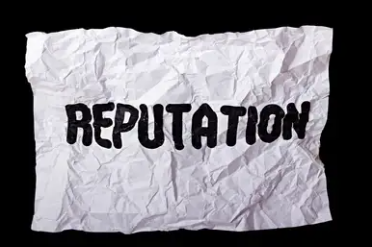Let’s Be Honest (Part 3/7): Cutting Corners Is Killing Your Business

Breaking the Rules to Stay Afloat
The housecleaning industry is a mess, and one of the biggest reasons? Nobody’s
playing by the rules. This isn’t just about cutting a few corners to save time or
money—this is an entire industry that’s normalized skipping critical steps in running a
legitimate business.
- No liability insurance? That’s risky.
- No workers’ compensation? That’s borderline reckless.
- Not reporting income or paying taxes? That’s flat-out illegal.
The truth is, more than half of housecleaning businesses are running on borrowed time.
And if this is hitting close to home, buckle up—we’re just getting started.
Why People Think They Can Get Away With It
Housecleaning is easy to enter. No formal qualifications, no startup capital, and no one
checking if you’re playing by the book. But that ease creates a ticking time bomb.
Operating without liability insurance might save you a few bucks today, but one accident
could bankrupt you tomorrow.
Think about it: if one of your employees breaks something, gets injured on the job,
guess who’s on the hook? That’s right—you. Without workers’ compensation or liability
insurance, your client could also be dragged into the mess, facing legal exposure for
hiring you. Is that the reputation you want for your business?
And let’s not forget the cash-under-the-table culture. Sure, paying your cleaners in cash
and skipping the tax reporting might feel like you’re gaming the system. But when you’re
ready to grow—maybe hire more people, take on bigger clients, or invest in your
business—you’ll hit a brick wall. No tax records? No chance of getting a business loan
or scaling in a meaningful way.
The False Sense of Security
Here’s the thing: these shortcuts work—until they don’t. You might think you’re saving
money by dodging the rules, but what you’re really doing is building a business on
quicksand. One lawsuit, one bad accident, one disgruntled employee reporting you to
the authorities—and it’s game over.
Operating legally and ethically isn’t a “nice-to-have”—it’s the bare minimum for a
business that wants to survive, let alone thrive. The housecleaning industry is already
plagued by a lack of trust and respect. What happens when clients find out you’re not
insured or that your employees aren’t covered by workers’ compensation? Spoiler alert:
they leave.
The Poaching Problem
Here’s another dirty little secret of the housecleaning industry: the very employees
you’re paying under the table are quietly building their own client list—and stealing
yours.
It happens every day. A cleaner works for you for six months, gains your clients’ trust,
and then “quits” to start their own operation, taking half your customer base with them.
Why? Because without contracts, proper payroll, and legal protections, you’re leaving
yourself—and your business—wide open.
And let’s not pretend this is a one-off. This cycle is baked into the industry. Every
cleaner you hire without a formal agreement and proper reporting is another potential
competitor in the making.
You’re Leaving Money on the Table
Let’s talk about all the opportunities you’re missing by staying in this gray area. Want to
bid on corporate cleaning contracts or work with property management companies?
Good luck without proper documentation.
These clients aren’t looking for the cheapest cleaner—they’re looking for professionals
who can prove they’re insured, compliant, and reliable. If you’re cutting corners, you’re
invisible to these opportunities.
And it’s not just about landing high-paying clients. Businesses that play by the rules can
invest in growth. Marketing, software, training—all the things that help you charge more,
scale faster, and actually enjoy the benefits of being a business owner.
Your Wake-Up Call
If you’re running your business like a side hustle, you’re not just hurting yourself—you’re
hurting the entire industry. Cutting corners might save you a few dollars today, but it’s
costing you long-term success, credibility, and the ability to grow.
The housecleaning industry deserves better. Your clients deserve better. And most
importantly, you deserve better.
It’s time to stop treating your business like a risky experiment and start building
something sustainable. Get the insurance. Pay your taxes. Protect your employees and
your clients. It’s not just the right thing to do—it’s the only way to win.





Responses